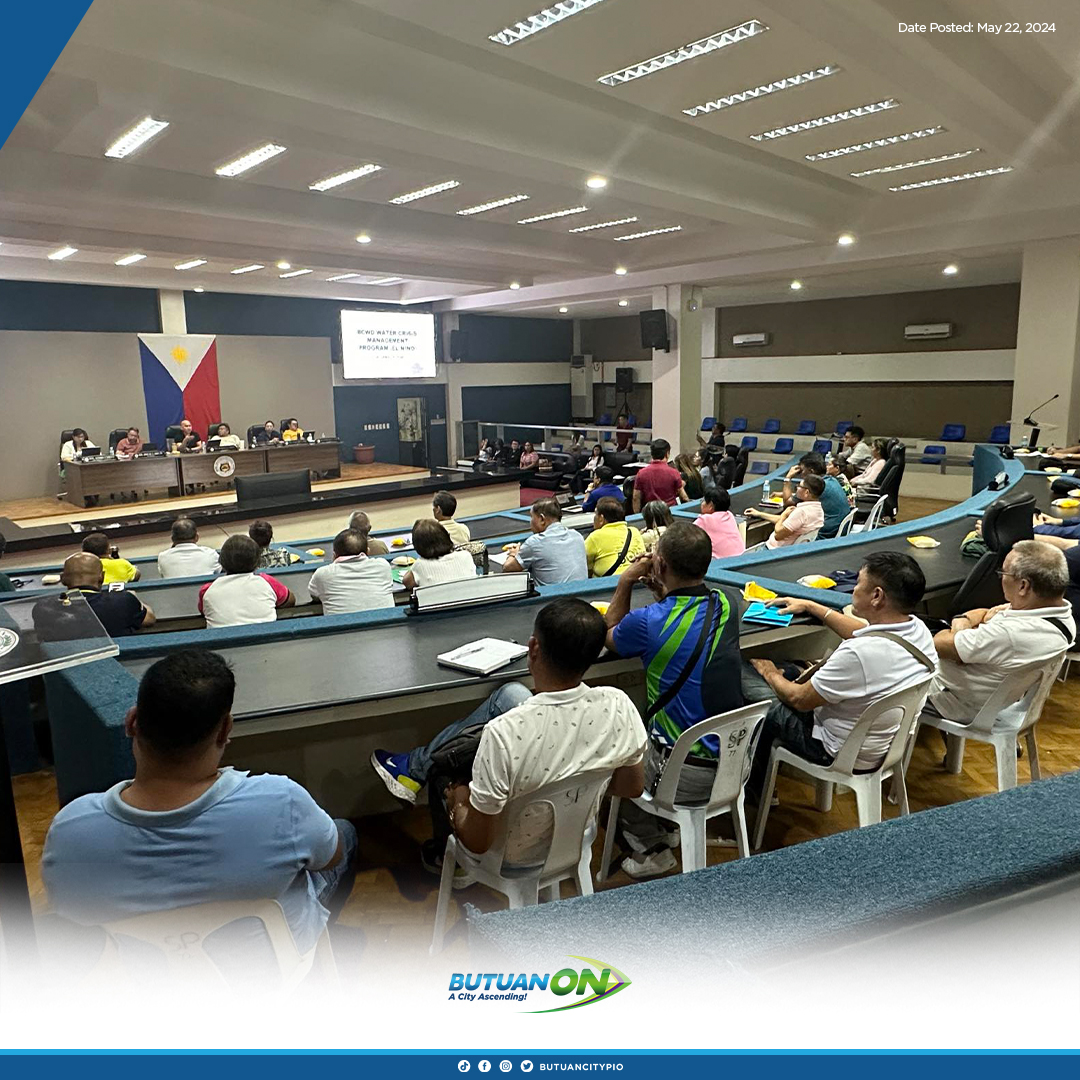
Committee hearing regarding the ongoing water crisis in the whole city of Butuan was held May 23, 2024. —official Facebook page of Butuan City PIO
SAN FRANCISCO, AGUSAN DEL SUR, Philippines — The local government of Butuan has declared the entire city under a state of calamity because of its “extreme water shortage” brought about by the long dry spell.
The state of calamity was declared through Sangguniang Panlungsod Resolution No. 238-2024 during the city council’s regular session on May 21 after Mayor Ronnie Vicente Lagnada recommended the measure through the City Disaster Risk Reduction and Management Council which he chairs.
READ: As El Niño persists, more local gov’ts declare state of calamity
In the resolution, the city council cited a report of the Philippine Atmospheric, Geophysical and Astronomical Services Administration (Pagasa) that the drought that affected Butuan for three consecutive months was “way below normal” or more than 60-percent reduction of rainfall in the urban center.
It noted that since April 21, the City Disaster Risk Reduction and Management Department, the Filipino-Chinese Fire Brigade and the Bureau of Fire Protection conducted daily water rationing to augment the water supply in urban villages where water supply is low.
The council also considered the report of the Butuan City Water District about the significant drop in the normal water supply flow from bulk water supplier Taguibo Aquatic Solutions Corp., from an average of 56.5 megaliters a day to 48.49 megaliters, with the flow rate still continuously decreasing.
The Taguibo watershed is the main source of water supply in the city.
But a report by Caraga Center for Geo-Informatics (CCGeo) said that the dam in the upstream of Taguibo watershed had already dried up based on the latest available satellite images tracked on May 19. CCGeo is an interdisciplinary center of Caraga State University that is devoted to the conduct of research, innovation and training activities in the field of geo-informatics.
‘Severe threat’
“These images vividly illustrate the alarming changes over time. The crisis poses a severe threat to our water supply, impacting both our daily lives and the environment,” CCGeo warned on Wednesday.
CCGeo said that extreme temperatures could have likely “significantly impacted the water levels in the Taguibo watershed.”
“Prolonged periods of high temperatures in the area over the past months likely led to increased evaporation rates; it may have reduced the surface water available in the [Taguibo] dam. This issue is further exacerbated by insufficient rainfall to replenish the water supply. These recent extreme temperatures have likely accelerated the drying up of the dam and other parts of the watershed, contributing to the overall water crisis,” it added.
CCGeo urged Butuan residents “to conserve water in our daily usage, support efforts to restore and protect our watershed and advocate for sustainable water management practices.”
Pagasa noted that Butuan City and six other areas in the country had registered a heat index of 45 to 46 degrees Celsius as of May 21.